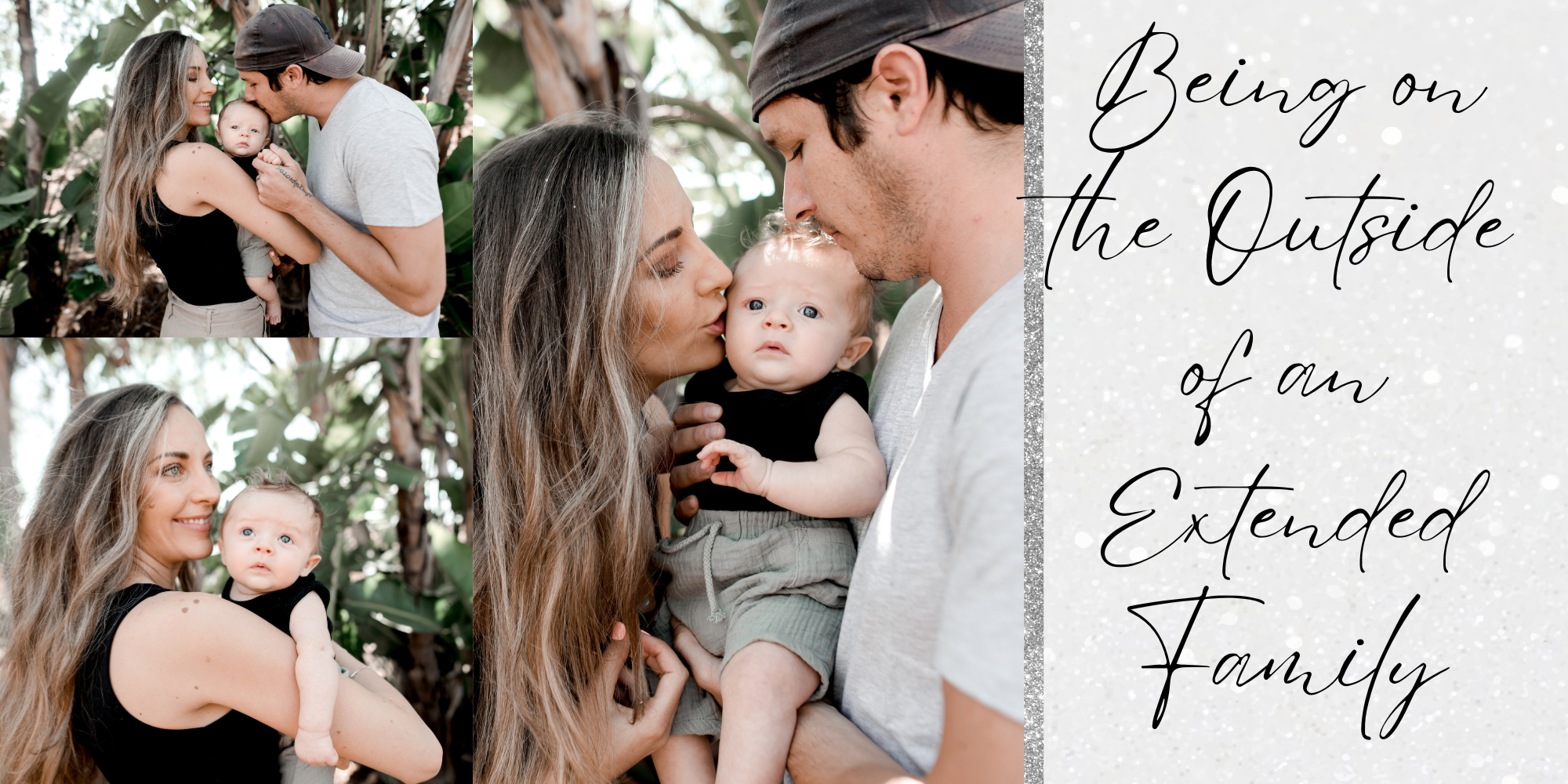Being part of an extended family can be a source of immense joy, camaraderie, and connection. Many people enjoy spending time with relatives, celebrating holidays together, and supporting one another through life’s challenges. However, not everyone experiences the warmth of being involved in such family dynamics. For some individuals, being on the outside of an extended family can lead to feelings of isolation, loneliness, and confusion. This article will explore the complexities of being on the outside of an extended family and offer valuable insights for dealing with these emotions, improving family connections, and finding your place in the family dynamic.
The Emotional Strain of Being on the Outside of an Extended Family
Being on the outside of an extended family can be a painful experience. When family members seem to form a tight-knit group, it can feel like there’s no room for outsiders. These emotional struggles can manifest in various ways, such as feeling excluded from family events, not being invited to gatherings, or experiencing a sense of detachment from family discussions and traditions.
For some, the feeling of exclusion can be linked to early experiences, such as family members choosing sides during conflicts or not supporting certain individuals due to misunderstandings or disagreements. Over time, these feelings can deepen, leaving someone wondering why they are unable to connect with the family in a meaningful way.
The emotional toll of being on the outside of an extended family may even impact a person’s self-esteem and sense of belonging. People may internalize the rejection or exclusion as a sign that they are somehow “less than” their relatives, or that they do not measure up to the family’s expectations. This negative self-image can be particularly damaging, especially when a person has invested a great deal of energy and effort into trying to feel accepted by the group. Abraham Quiros Villalba
The Root Causes of Feeling on the Outside
The reasons for feeling like an outsider in an extended family are often complex and multifaceted. In some cases, it may stem from personal conflicts or misunderstandings between family members. Family dynamics can be challenging to navigate, especially if there are historical tensions, unspoken grievances, or differing values and priorities within the group.
One common reason for feeling on the outside is the presence of an “in-group” or clique within the extended family. This often happens when certain relatives bond closely and develop shared interests, while others are left out. These cliques may unintentionally exclude individuals who don’t align with their interests, creating a sense of division within the larger family unit.
Another cause for being on the outside of an extended family is differences in life stages. Families are made up of people at various ages, with distinct priorities, schedules, and goals. For instance, younger members of the family may form closer connections with other young relatives, while older relatives may have shared experiences that create bonds. When there’s a significant gap in life stages, it can be hard to find common ground, leading to feelings of exclusion.
Family members who live farther away or are geographically distant may also feel like outsiders. These individuals may be unable to attend family gatherings regularly, making it more difficult to integrate into the family dynamic. Over time, this absence can foster a sense of being disconnected, especially if other family members continue to see each other frequently.
Navigating the Complexities of Being on the Outside
Though it’s understandable to feel hurt when you’re on the outside of an extended family, it’s important to recognize that these situations can often be improved with effort, communication, and a shift in perspective. Here are some ways to cope with the feelings of exclusion and build stronger connections with your extended family:
1. Initiate Conversations and Reach Out
Taking the first step in reaching out to family members can be daunting, but it can also be incredibly rewarding. If you’re feeling excluded, consider contacting a family member to start a conversation. Let them know that you’re interested in connecting and getting involved in family events. Even a simple phone call or text can make a significant difference in bridging the gap and demonstrating that you want to be part of the group.
If you’re unsure how to approach family members, try asking open-ended questions to initiate meaningful conversations. Ask about their lives, interests, or recent experiences. By showing interest in others, you can foster an environment of inclusivity and understanding.
2. Find Common Ground
One of the most effective ways to break the isolation of being on the outside of an extended family is to find shared interests or activities. Whether it’s a love of sports, hobbies, or family traditions, finding common ground can give you a reason to spend time with your relatives and start building meaningful relationships.
If the family tends to gather for holidays or birthdays, make an effort to participate in these events, even if you feel like an outsider. By showing up and being present, you demonstrate that you value the family connection and are eager to be involved. Over time, these small steps can help you feel more integrated into the family group.
3. Understand and Respect Family Dynamics
Family dynamics are often shaped by years of shared experiences, history, and relationships. When you’re on the outside, it can be easy to assume that the family is intentionally excluding you. However, it’s important to remember that family members may have their own dynamics that you may not fully understand. Instead of focusing on feeling left out, try to observe the family’s patterns and understand how they interact with one another.
It’s also crucial to respect family boundaries and give people space if they need it. In some cases, certain family members may need time to warm up to new connections or individuals who are perceived as outsiders. By respecting their boundaries, you allow the relationship to grow naturally.
4. Let Go of Perfection
No family is perfect, and no one is going to fit perfectly into every family dynamic. If you find yourself struggling to fit in or connect, it’s important to let go of the idea of perfection. Embrace your uniqueness and recognize that your value as a person does not depend on whether or not you are fully integrated into every aspect of the family.
Being on the outside of an extended family doesn’t mean that you are less important or valuable. You are still a unique individual with your own qualities and experiences, and that in itself is something to be celebrated.
Moving Forward: Strengthening Family Connections
Ultimately, being on the outside of an extended family is not a permanent state. By taking proactive steps, being patient, and staying open to communication, it’s possible to create a space for yourself within the family dynamic. While it may take time, your efforts can lead to more fulfilling relationships with your extended relatives.
In some cases, family members may never fully accept you, and that can be a difficult truth to face. However, that doesn’t mean you should stop trying. Consider seeking support from other family members who are open to building a connection with you. Having one or two strong relationships can help you feel more included and supported.
At the end of the day, being on the outside of an extended family can be challenging, but it also offers an opportunity to better understand family dynamics, strengthen your relationships, and grow as an individual. With persistence, compassion, and patience, you can find your place and create meaningful bonds that last a lifetime.
Conclusion
Being on the outside of an extended family can be an isolating and difficult experience, but it doesn’t have to be a permanent state. Through proactive communication, finding common ground, and respecting family dynamics, you can navigate the complexities of family relationships and find your place within the family. By acknowledging and understanding the struggles of being on the outside, you can take meaningful steps toward creating more fulfilling connections that foster understanding, support, and love.












